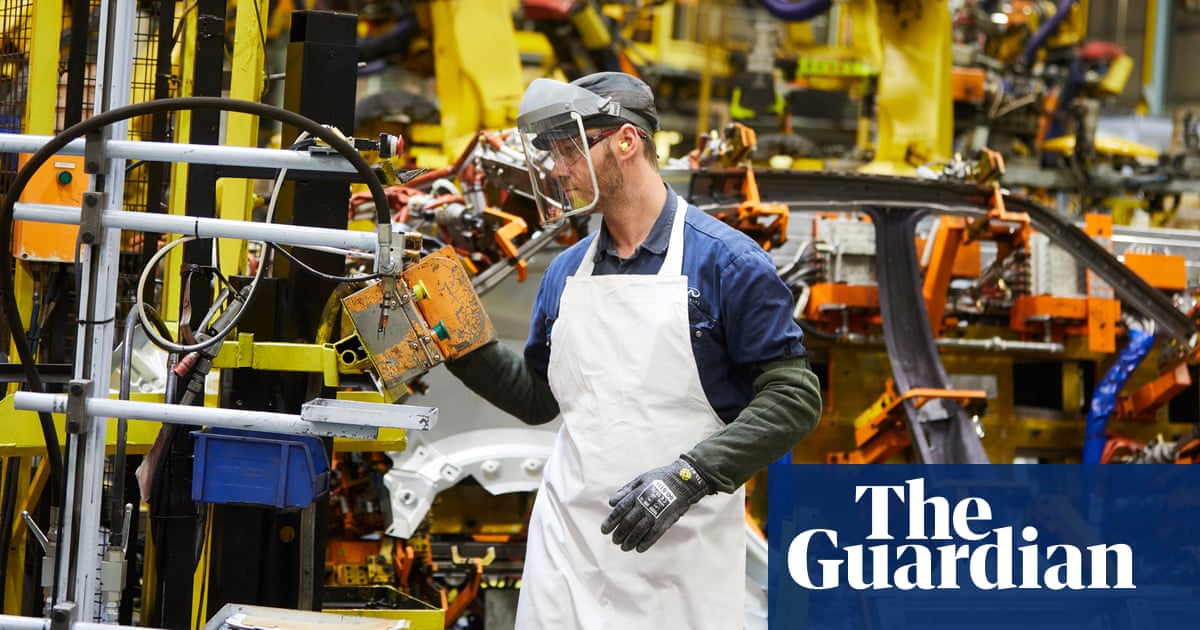
Britain’s economy has taken a step closer to exiting recession as official figures showed growth continued in February despite a washout month for construction and retail after one of the wettest starts to a year on record.
The Office for National Statistics (ONS) said gross domestic product (GDP) rose by 0.1% in February, matching City economists’ forecasts and extending a recovery after growth in January was revised up from 0.2% to 0.3%.
Liz McKeown, an ONS director of economics statistics, said: “The economy grew slightly in February with widespread growth across manufacturing, particularly in the car sector. Services also grew a little, with public transport and haulage and telecommunications having strong months.
“Partially offsetting this there were notable falls across construction as the wet weather hampered many building projects.”
The UK met the technical definition of recession after contracting in the third and fourth quarters of last year. An end to the slump will require a continued expansion in March to meet a quarterly return to growth.
Rishi Sunak is under pressure to show progress on the economy before sending voters to the polls in a general election expected later this year, with the Conservatives trailing Labour in opinion polls.
The latest figures also show growth of 0.1% over the three months to the end of February, the first expansion over a three-month period since last summer, with activity recovering from a slump last year as households cut back on spending amid the cost of living crisis.
The chancellor, Jeremy Hunt, said the figures were a “welcome sign that the economy is turning a corner, and we can build on this progress if we stick to our plan”.
Growth in February was driven by manufacturing in particular, with a sharp recovery in car production, where output was up by 17.8% compared with the same month a year earlier.
However, construction output collapsed by 1.9% on the month as heavy rainfall forced cranes to sit idle on building sites. The UK’s dominant services sector, which makes up about four-fifths of the economy, also struggled for growth momentum, with an expansion of only 0.1% on the month amid weaker activity in retail and wholesale distribution.
The ONS highlighted figures showing it was the fourth wettest February on record in England, contributing to fewer sales by household goods and food stores but increased online sales.
It also said conflict in the Middle East had disrupted global supply chains, hitting retailers, vehicle mechanics and health and social work, where approximately one in 10 businesses were affected.
Economists said GDP would need to fall by an unlikely 1% or more in March for the economy to contract over the first quarter of 2024 as a whole, meaning an escape from a short and shallow recession is widely anticipated. Business surveys have also pointed to continued strength in private sector activity in March.
Paul Dales, the chief UK economist at the consultancy Capital Economics, said: “As a result, we can safely say, after lasting just two quarters and involving a total fall in GDP of just 0.4% or so, [that] the recession ended in the fourth quarter.”
However, growth is expected to remain weak while households and businesses remain under pressure from elevated Bank of England interest rates and significantly higher prices for goods and services than three years ago.
Despite the monthly recovery in output at the start of 2024, GDP remains below its level of June 2023, and has stayed broadly flat since early 2022.
Paul Nowak, the general secretary of the Trades Union Congress, said: “Our economy is still smaller than this time last year, with growth stuck in the slow lane. Real wages are still worth less than in 2008. And millions are struggling to cover their bills.
“After 14 years of stagnation you’ll be hard-pressed to find many people who feel better off.”
The shadow chancellor, Rachel Reeves, said: “After 14 years of Conservative economic failure, Britain is worse off with low growth and high taxes. The Conservatives cannot fix the economy because they are the reason it is broken.”












